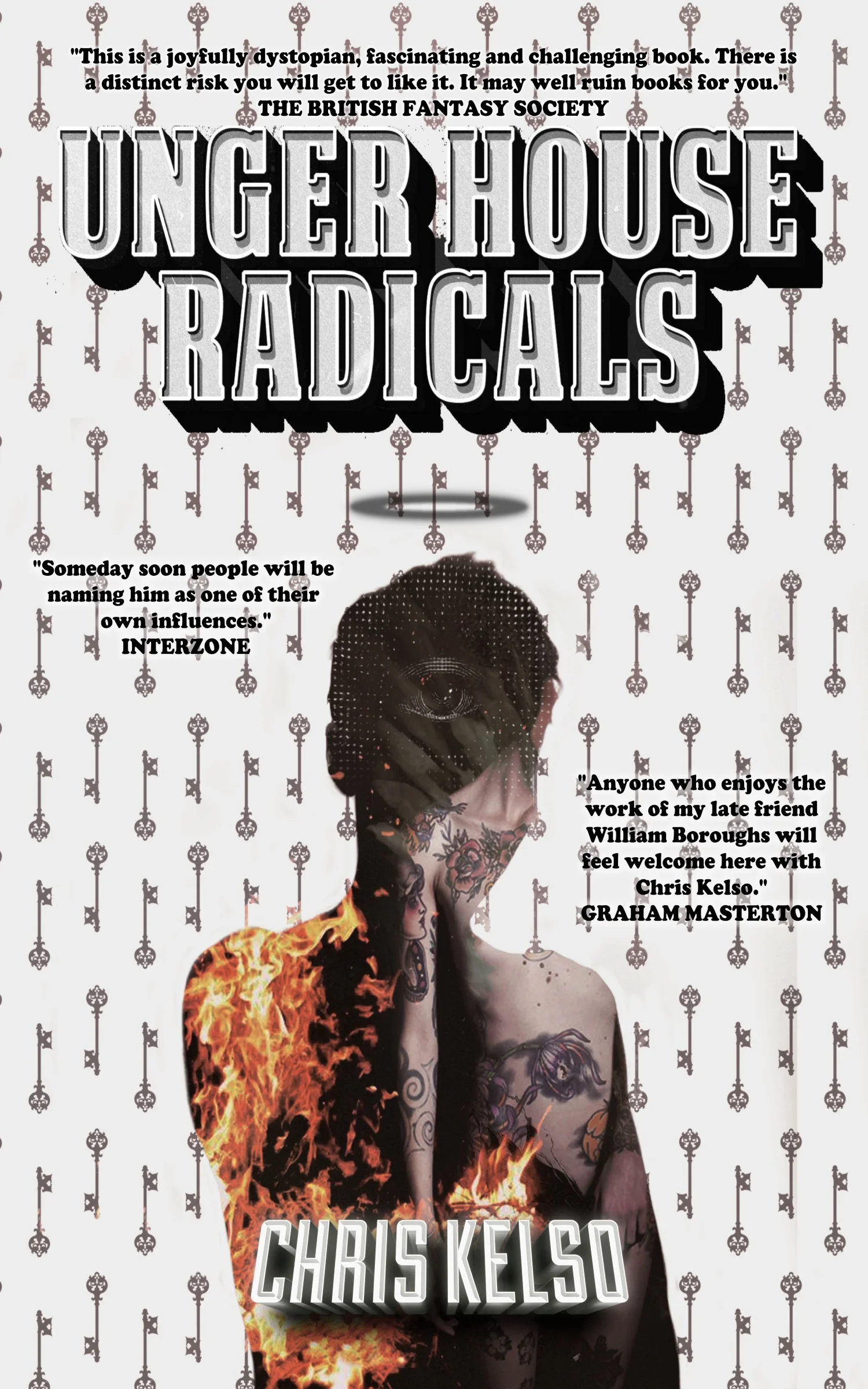Book Review : Chris Kelso - Under House Radicals (2016)
Order UNGER HOUSE RADICALS here
The parallels between art and murder aren't exactly new in storytelling. Both literature and cinema are full of murderous weirdos who jack off on the dismembered bodies of their victims thinking they're one-upping Jackson Pollock or some shit. And you know what? Every single one of them is boring as hell. None of these guys actually convinced me there were any parallels whatsoever between the two concepts. But I haven't given up on it. It's one of the reasons why I decided to read Scottish author Chris Kelso's novel Under House Radicals about a demented filmmaker and a sadistic killer trying to create something new. Did it? Keep reading to find out.
So, there you have it. Under House Radicals is the story of film student Vincent Bittacker and murderous wacko sadist Brandon Swarthy, who want to create a new cinematographic movement called ultra-realism. The gist of it is: no censorship, no filter, extreme actions and extreme reactions delivered raw and in your face. They travel to an infamous place in Louisiana called Unger House looking for a "star" to make their demented ideas come to life. And it does. Bittacker and Swarthy film their movie, get it out in the wild and ultra-realism becomes a thing in a number of artistic circles. It starts traveling over the continent like the black plague, infecting the minds of the young, bored and creative.
So, ultra-realism, huh? That was my main issue with Unger House Radicals. I didn't find any tangible difference between Vincent Bittacker and Brandon Swarthy's ultra-realism and snuff movies, which are as devoid of artistic merit as it gets. They're just murders on camera that foster a sadistic relationship between the perpetrator and the audience. Bittacker and Swarthy did not convince me they were making art at all, so why should I care about their ultra-realism beyond the five minutes of morbid curiosity I'd give to a cartel execution video on YouTube? So, why should I care? Why should I find it interesting? Bittacker spends a lot of time trying to convince the audience he's a misunderstood genius and that he's about to create something new, but he doesn't bother explaining why he is and how he's going to do it, making him beyond unsympathetic to me. He was...kind of useless.
But....Unger House Radicals started showing signs of life about one third into it. Once Bittacker and Swarthy reach the infamous domain and start filming their movie, the novel starts going in a weird, Re-Animator'esque direction that made my ears perk up. Chris Kelso doesn't really pursue this idea that could've lead to batshit crazy places and starts fragmenting his narrative soon after, something he's somewhat notorious for. That was interesting too, because it's where Kelso starts shifting the focus of his novel from the parallels between murder and art to the propagation of ideas. Every subsequent narrator to Bittacker and Swarthy reappropriates ultra-realism through relics and word-of-mouth and start reinterpreting it based on their own fragmented knowledge. I didn't see any value in the concept of ultra-realism pe se, but I enjoy seeing it transformed into something it's not, if that makes sense?
So, my regulars might find me a little harsh towards Chris Kelso. It's not the first time I'm being openly critical with one of his novels. I keep talking about him nonetheless because his work is interestingly flawed. It's ambitious and raises questions other authors wouldn't dare prodding with a ten foot stick. Unger House Radicals explores an idea that hadn't been touched for close to a decade and while it ultimately fails to develop it to a satisfying end, it did develop it a little further and maybe someday we'll have a strong novel/movie about the parallels between murder and art because of it. Kelso still doesn't connect all the dots in Unger House Radicals but it's as close as he's been.






